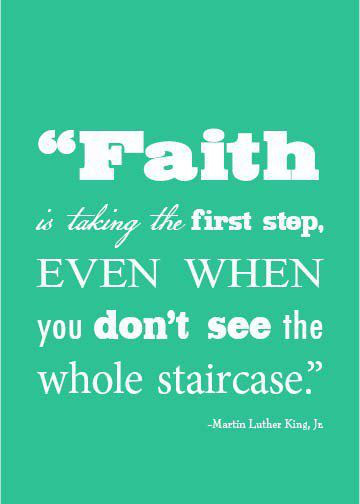Recently Bishop James D. Conley (Bishop of Lincoln, NE) spoke to the priests of the Archdiocese of Philadelphia at St. Charles Seminary during a “Day of Sanctification for Priests.” The bishop referenced the “Jubilee year of Mercy” recently promulgated by Pope Francis and tied in the writings of St. John Cardinal Newman.
When considering Pope Francis’ document Misericordia Voltus (his proclamation of the “Jubilee Year of Mercy”) The Holy Father mentions that mercy is waiting in the world to be bestowed and that The Church is the mediator of God’s Mercy in the world.
People used to go to church to receive something. They wanted to get their “spiritual goodies.” Francis has indicated that there now seems to be a need to change the focus. Certainly we “go to church” to receive - not so much “something” - as “someone”. But is it not to receive Christ for ourselves. It’s not even to receive Christ to give to others either. It’s more along the lines of Mark 6:37: “Give them bread to eat yourselves!” We need to offer mercy to others so that, through their own encounter with Christ, they can fend for themselves with their own personal relationship with the Lord.
The challenge that faces us is similar to the challenge that faced St. John Newman in the late 1800s in England. Newman wrote in 1879 that, “These people have no sense of the church and have had no exposure to the Gospel.” There are three foundations of Newman’s thought on mercy.

The first challenge deals with the human heart. Newman’s motto was “Cor Ad Cor Loqitor” (“Heart Speaks to Heart”) which Newman actually got from the teachings of St. Francis de Sales during the “Counter Reformation” in Geneva, Switzerland. Logic and catechesis can inform and instruct, but it cannot cause faith. For that you need to touch someone’s heart (“Cor Ad Cor Loqitor”). Man cannot attain happiness through what humanity alone provides. Consider the example of Saint Augustine who wrote, “Our hearts are restless until they rest in you O Lord.” The void in our hearts are eternal and only Christ is big enough to fill the void in our hearts. Along difficult pathways; only Christ orders the disorder and heels the brokenness. Here is where sacraments play such a key role. Sacraments equal encounters with Christ-in-the-crisis.
The second challenge deals with implementation of the “Year of Mercy.” Programs and techniques don’t touch hearts, only witnesses do this. In addition, mercy does not mean the same thing as just being nice and fair and tolerant. Finally, discipleship not only involves the right to speak or call or talk, it involves the responsibility to do so. Discipleship is about Christ and Christ is always about a personal encounter. “Personal” encounter overcomes “impersonal” secularism. Newman wrote about what he called “well endowed men” who not only understood their faith but also could explain it in a way that was cogent and compelling, these were people whose lives were exciting and completing as well. He wrote “A few highly endowed men will rescue the world for centuries to come. These are the people who have “received and transmit the sacred flame … fully purposed to send it on as bright as it has reached them.” Newman recommended to parents the importance of having their children be in contact with such men and women. Quality time with even a few of such believers would lay a firm spiritual - and very human – foundation in the lives of their children.

The third challenge - disciples have to intellectually know their faith as well. Newman was writing in the midst of the “Industrial Revolution” where some saw religion/faith in conflict with science/reason. Cardinal Newman disagreed, as did Pope Benedict XVI years later. The Pope Emeritus once said that “We must not only believe in faith and reason, we must believe faith in reason as well.” In 1871, according to Newman, very few people knew their religion because very few people actively “entered into their religion.” Since very few people could explain their faith, very few people could take the historical context in which they lived and explain the churches role in their own time (Sound familiar?). Lay men and women who could were lay faithful who would “have more of an impact that even the very best clergy could even attain. Athanasius was a bishop but Andrew, and the rest of his lay brothers and sisters were a greater force against the greatest heresies at the time.””
It is the same today. We simply cannot stay in the church building and remain in our comfortable “catholic ghettos.” We need to inoculate the “spheres” of the world with the sphere of the Gospel. Help people to discern the Holy Spirit in their lives. Offer guidance, not control. To quote Archbishop Chaput, “Get out of the way and allow the Holy Spirit to move in the souls entrusted to your care.”
In closing we can also look to the example of Saint Andrew who also provided three guidelines to being a disciple:
- He did not hesitate. He was the first one to respond “yes,” then told others about Christ. Why such a quick response. He was hungry. He was impatiently waiting for God to appear. Like Andrew, each of us needs to be a soul waiting for “the appearance” as to rejoice when He finally does appear - and then go and tell others what has happened.
- Andrew went outside “the circle”. He didn’t only stay around people he knew and with whom he was comfortable. He sought, and went, outside of the box. And you don’t have to stay outside the box for long periods of time (That can certainly be a scary place to be). A short meeting can have a great impact. For example Andrew meeting with “a few Greeks”.
- Much like St. Peter, Andrew chose a different kind of cross than the one chosen by Christ. Much like St. Paul mentions in his Letter to the Galatians, “The cross will take me from man (flesh) to Christ.” Our acceptance of “other crosses” is a means of becoming configured to Christ in a unique way. Sufferings always ennoble and provide meaning which leads to purpose in our lives.